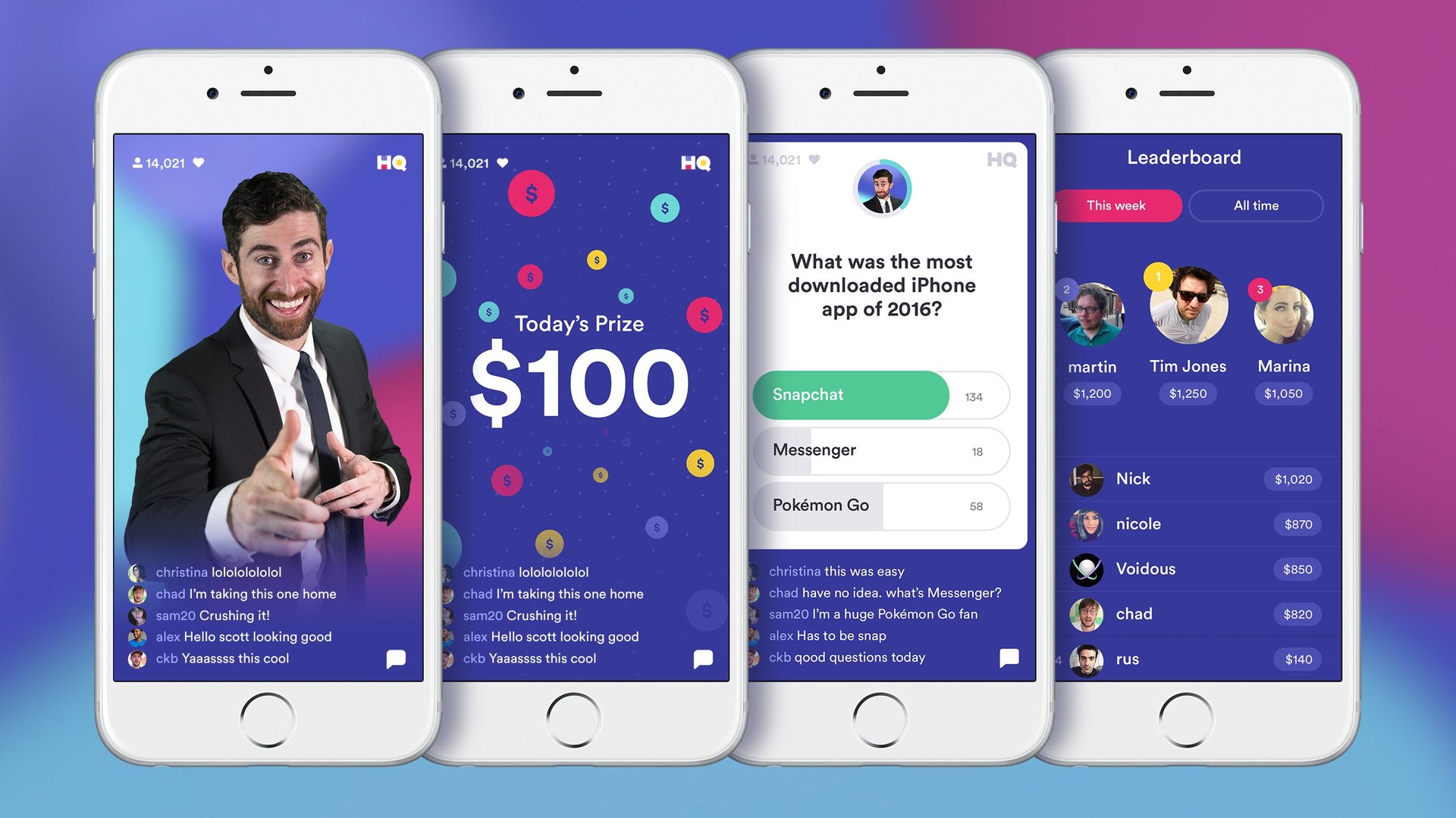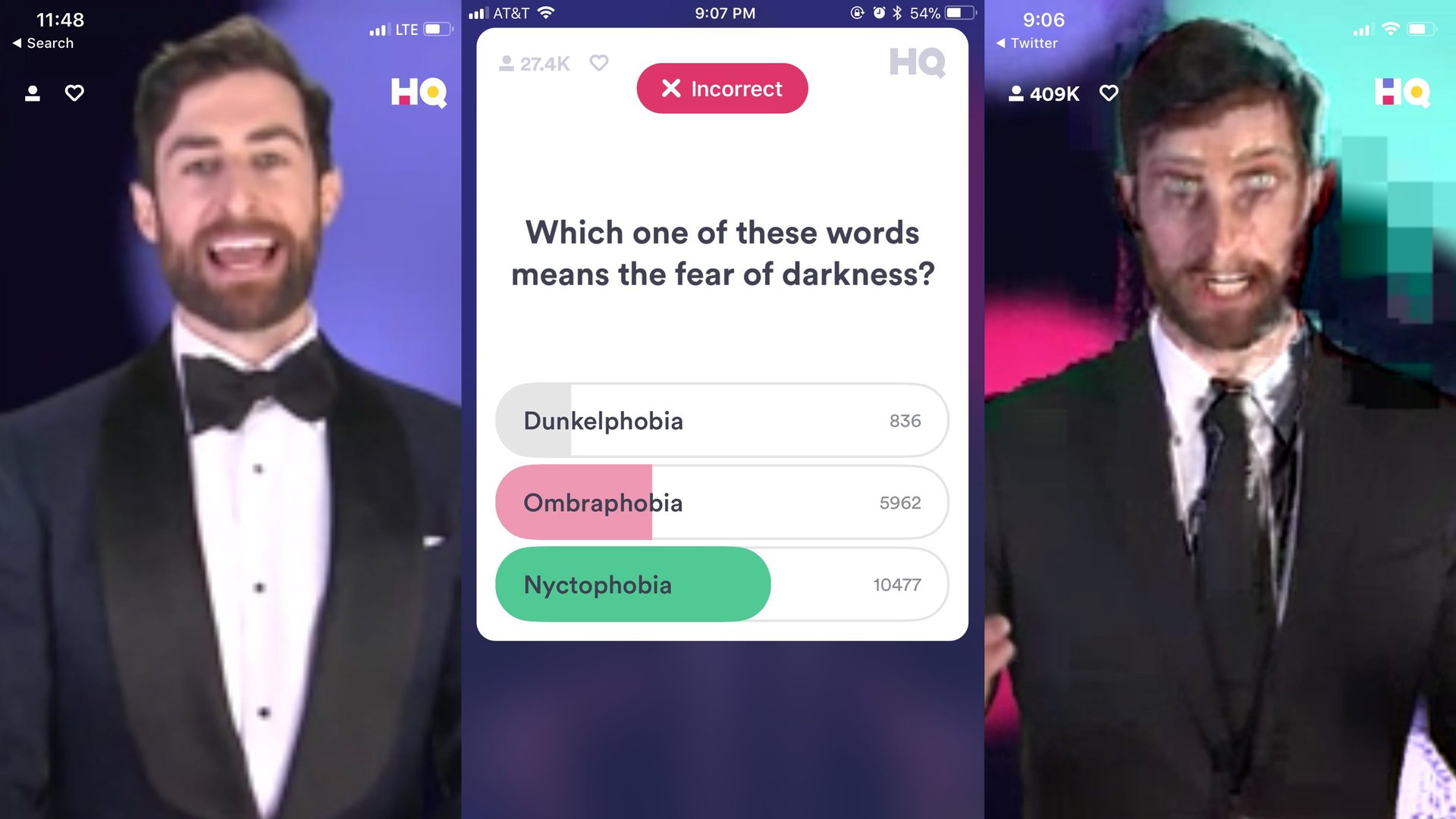HQ Trivia has built a devout following, and all of America will soon find out why
At 9pm US eastern time on New Year’s Day, some 750,000 people shook off their lingering hangovers to tune into HQ Trivia, a three-month-old app that serves up real-time quizzes to users. Just one day earlier, HQ had launched a beta version of its app for Android, putting a wildly popular iOS game that much closer to Android’s two-thirds of the US smartphone market. Both beloved and feared—it has been referred to as the future of live television and a harbinger of dystopia—HQ Trivia is now poised to appeal to a far, far larger audience.


At 9pm US eastern time on New Year’s Day, some 750,000 people shook off their lingering hangovers to tune into HQ Trivia, a three-month-old app that serves up real-time quizzes to users. Just one day earlier, HQ had launched a beta version of its app for Android, putting a wildly popular iOS game that much closer to Android’s two-thirds of the US smartphone market. Both beloved and feared—it has been referred to as the future of live television and a harbinger of dystopia—HQ Trivia is now poised to appeal to a far, far larger audience.
What is HQ?
First, a primer. HQ is a trivia game, not wholly dissimilar from TV gameshows like Jeopardy! or Who Wants To Be A Millionaire, except minus the studio audience and having to answer in the form of a question. Every day at 3pm and 9pm US eastern time, a host walks everyone watching through a series of 12 multiple-choice questions on a range of topics. Get all 12 right, and you win a share of the prize pot for that day; on New Year’s Eve, HQ gave away $18,000. Get a single question wrong, and you’re out (although there are ways to cheat to get extra lives).
HQ was founded by Rus Yusupov and Colin Kroll, who started six-second-video app Vine in June 2012, before selling it Twitter that October (Twitter shut Vine down last year). Yusupov and Kroll are looking to raise venture funding for HQ with a valuation of $100 million, according to Recode, which reported that the company has raised about $8 million to date.
Since launching on iOS in October, HQ Trivia has rapidly taken off. It’s now the fourth-most popular game on iOS in the US, and the 13th most popular US iOS app overall as of Jan. 1, according to app metrics firm App Annie. Hundreds of thousands of people tune in each day to play. While HQ told Quartz it doesn’t yet have a date set for a full Android launch, that day will make the game available to tens of millions more Americans.
Who hosts?
HQ has a few hosts, but its most common—and arguably most-loved—is a relatively unknown comedian by the name of Scott Rogowsky. An affable, wisecracking figure in a sharp suit, Rogowsky has been called “Trap Trebek” by his followers (in reference to the longtime host of Jeopardy!), as well as “Quiz Daddy,” “Quizzie McGuire,” and myriad other nicknames. His ability to riff around the questions asked during each game, or when HQ is having server issues and he needs to kill time, is second-to-none.
There’s also Sharon Carpenter, a British journalist and TV host on BET and CBS, who often seamlessly fills in for Rogowsky.
Can it scale?
Replicating Rogowsky’s riffing is one of the hurdles HQ Trivia will have to overcome if it hopes to succeed long-term. While it’s possible to develop a near-endless list of trivia questions, finding hosts skilled at both scripted material and off-the-cuff comedy—and able to do both multiple times a day—may prove more difficult. Already, knock-off trivia-show apps are discovering the limits of lesser hosts. After all, who kept watching Millionaire after Regis Philbin left?
Then there are the technical issues. As HQ has grown, its feed has been laggy for many users (the pre-host intro even instructs people to jump on a strong wifi connection), and the app has crashed so hard that HQ had to restart entire games after their scheduled times.
On New Year’s Eve, for example, the game loaded for many users without any questions, leaving Rogowsky, standing against a technicolor wall in a shawl-collar tuxedo, rattling off answers to questions that users couldn’t click on. When the team figured it out, they had to restart the game a little after midnight US eastern time, using the same starting questions. Not exactly how things go down on Jeopardy!
Going forward, HQ’s team will need to ensure that it can support live video for hundreds of thousands of users, and will need to pay for it. (Video-streaming costs have been a massive thorn in the side of Snapchat, costing its parent company billions of dollars and eating into potential profits.)

And then there are HQ’s founders, who may not be ready for primetime. In November, Rogowsky agreed to speak to a reporter at the Daily Beast without running it by Yusupov or Kroll. Yusupov, HQ’s CEO, called the reporter, furious, and told her that publishing the interview would result in him firing Rogowsky. He later apologized, and conceded he was looking for a proper PR rep, but the episode suggested that HQ’s leadership may not be making the sharpest business decisions. (Vine was shuttered, after all, because it didn’t make Twitter any money.) There are reportedly also concerns about the founders’ managerial behavior when they were at Twitter, which may be scaring off potential investors.
Lastly, HQ will need to figure out how to monetize. Right now the company is spending the cash it receives on prizes and hosting costs. It has in the past shown how the game could have space for advertisements between questions, or possibly even sponsored episodes (there was recently an entire week of guest hosts). Advertisers and investors will need to see value in capturing HQ audience’s attention for about 15 minutes twice a day, but that shouldn’t be a hard sell considering it’s conceptually not that different from advertising on a traditional game show. Still, HQ will need to convince those advertisers that it’s more than just a fad.
Is it a fad?
Who knows. Fidget spinners and hoverboards were cool until they weren’t (or maybe they never were) and Pokémon Go was huge until it wasn’t (it’s still popular, though). Apps and memes come and go at a rapid pace, and building something with staying power is beyond difficult.
Still, Jeopardy! has been going strong since the Reagan administration; and even after Philbin left, Millionaire succeeded in US syndication for a decade. Perhaps HQ can be the quiz game for the modern era, a small dose of knowledge for overstimulated, phone-addicted kids looking for a moment’s respite from their Instagram stories. Or maybe it will run out of funding, and Rogowsky will have to give up his Brooklyn apartment and move to Los Angeles like he planned to before the app took off.
For now at least, the future looks bright—almost as bright as that technicolor background. The app’s audience continues to swell; the question is whether they’ll keep tuning in once the novelty wears off.